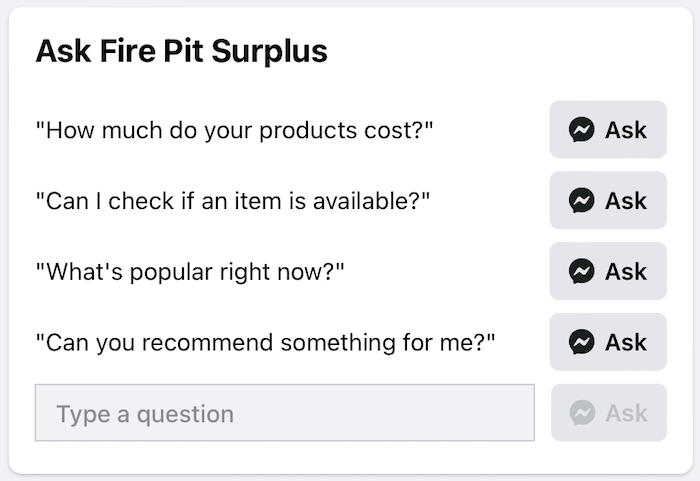What Your Company’s Social Media Presence Says About Your Small Business Brand
[ad_1]

How much time do you think your potential customers spend on social media?
If you check GWI’s latest social media trends report, you’ll discover that the average person dedicates 2 hours and 26 minutes to browsing socials daily. And if you consider the fact that finding information about brands and products is one of the top three reasons people go online, you’ll quickly realize that a well-planned social media strategy truly is crucial for the success of your small business.
But while reaching potential buyers and engaging with existing customers makes for an excellent reason to invest time and money into social media marketing, there’s one additional benefit of being active on the platforms many brands (unfortunately) overlook.
Social media is a potent tool for establishing and upholding your brand’s identity.
So, what does your company’s social media presence say about your brand? And what can you do to ensure the daily messages align with your short and long-term branding goals? Let’s find out.
Can your brand be trusted?
Over the past couple of years, the world has witnessed serious shake-ups. And unfortunately for businesses (and governments, media, and NGOs), the result is a so-called crisis of trust.
According to Edelman’s latest Trust Barometer report, 59% of people describe their default state as being that of distrust. One of the main challenges for small businesses is proving to their potential and existing customers that they are reliable, trustworthy, and capable of meeting their client’s needs.
The great thing about social media is that it can help you do this relatively efficiently.
First and foremost, social media marketing allows your company to achieve the effect of consistency. By doing something as simple as frequently posting, using your brand’s authentic voice, and maintaining a visual consistency in your posts, you can improve brand equity and brand awareness and help your followers perceive your brand as a stable and dependable entity they know what to expect from.
Want a free brand review?

Answer 5 short questions and we will send a custom report with actionable insights and specific actions you can take to build a stronger brand.
We just emailed the info to you.
For an excellent example of a brand doing all of this on Instagram, check out Sola Wood Flowers. Their posts are not only aesthetically uniform, but the post types are also predictable. There’s just the right mix of product shots, educational posts, and user-generated content.
Couple this with the fact that the brand follows a non-failing one-post-per-day schedule, and you can see why it has such a robust online presence with more than 46k engaged followers.

Using strategies to build brand credibility
The alternative method for ensuring the trustworthiness of your business through your social media presence is to use strategies that build brand credibility.
One such strategy is collaborating with influencers and micro-influencers (particularly with a diverse mix of online personalities). In fact, according to a recent report from TINT:
- 45% of consumers don’t like following brands that do too much self-promotion.
- 65% want to see more brands featuring diverse voices on their social media profiles.
- 78% of people know when brands are advertising to them and prefer to do their research by searching for reviews and testimonials.
Looking at this data, it’s clear that if you want to show your followers that they can trust your business, you must find ways to collaborate with credible and relevant people. (And not just a random internet celebrity whose audience couldn’t care less about your products).
A brand that does this spectacularly (and that you should look up to for inspiration) is Transparent Labs. That company has successfully built its online presence by relying on the authority and trustworthiness of people in the fitness industry.
Some influencers featured on Transparent Labs’ feed are micro-influencers with limited followings. Others, however, are proper celebrities — like The Mountain from Game of Thrones.
But what all these ambassadors have in common is that they’re people whom Transparent Labs’ audience can relate to and trust. Thus, the brand proves that it’s an entity that fitness enthusiasts can rely on to deliver products that will solve their nutrition-related pain points.

Do you have your customers’ best interests at heart?
Another thing people can conclude about your brand by checking out your social media presence is whether your company cares about its customers.

You’re probably no stranger to big brands acting in their best interest — often at the expense of their loyal clients.
Chocolate packages, for example, have gotten considerably smaller over the past couple of years. And smartphone manufacturers have made billions by removing power bricks from phone boxes, all under the ruse of “environmental consciousness.”
Fortunately, your company’s social media presence can allow you to convince your followers you’re not that type of brand. And, the great thing is, it doesn’t even have to be that difficult.
By maintaining an empathic tone and publishing posts that are genuinely helpful to your audience, you can effectively drive emotional buy-in for your brand. Moreover, this strategy can help you build long-lasting relationships with your followers and attract a growing number of people making purchasing decisions based on brand values.
So, what does showing you have your customers’ best interests at heart look like?
If you’re searching for inspiration, look no further than Pretest Plus. On its Twitter feed, this brand regularly wishes its followers good luck on upcoming national tests. It also shares valuable content with many great tips for students and parents, proving that it’s a company passionate about helping its clients do their absolute best on all school exams.
Of course, not all brands provide products/services that directly impact their customers’ futures. Nonetheless, even lighthearted content, like that published by Le Creuset on TikTok, can show your followers that you want the best for them (even if that comes in the form of a delicious-looking grilled cheese sandwich).
Are you relatable & do you have a likable personality?
Whether your brand is authentic and human has an immense impact on how your audience perceives your company.
Research shows that as many as 86% of consumers consider brand authenticity a critical factor in purchasing decisions. Moreover, people will decide whether to recommend a brand based on whether it appears genuine. And the same characteristic will also impact their loyalty.
So, knowing that you need to be honest with your audience (relatable, likable, and transparent), it’s not a bad idea to ask yourself: what does your social media presence say about your brand’s personality?
One recent scientific study found that social media activity directly correlates to perceived brand authority. According to the research, facial expressions and aesthetics in Instagram images cause consumers to evaluate the brands themselves, with smiling faces and candid snapshots leading to higher perceived genuineness.
The great thing is that this is super easy advice to follow if you want to use social media to humanize your brand.
For example, you can do something akin to Real Thread. Its behind-the-scenes Instagram videos reveal a healthy workplace culture and positive attitude that are impossible not to like.
Or, if visuals aren’t your strong suit, you could look up to Domino’s. This brand appears funny, relatable, and original simply by sticking to its recognizable voice on Twitter.
Are you available to your customers (whenever they may need you)?
One way in which paying attention to your company’s social media presence can help you positively impact brand identity is the question of availability.

According to survey data, today’s consumers consider efficiency the most important contributor to good customer service. As for frustrations, what people dislike the most is having to deal with an inexperienced representative, being forced to repeat themselves, having difficulty reaching a live agent, and not being able to resolve issues using self-service.
Social media can help you overcome (at least some of) these frustrations.
By doing something as elementary as putting together some prepared questions on your social profiles — as done on the Fire Pit Surplus Facebook page — you can urge your customers to seek out social support and resolve their issues more quickly than if they were purely relying on traditional communication channels.
Or, you could go all out, like Spotify did, and create a dedicated support profile for your business. As you can see, this brand uses the support account to provide followers with helpful tips on how to get more out of the app and resolve tech and payment issues that are bound to come up with millions of worldwide users.
Does your organization have a heart?
Finally, as you look at how your social media presence defines your brand’s personality, it’s not a bad idea to ask yourself: what are the values at the core of your brand’s identity? And how is your social marketing strategy helping you communicate and uphold these values?
According to data, purpose is growing in importance in consumer buying behavior. In a recent survey, Deloitte found that:
- One-third of young consumers prioritize sustainability when shopping.
- Almost a quarter of people pay more attention to privacy issues (especially when choosing banking service providers).
- 57% of people say they are more likely to remain loyal to brands that address current social inequities.
In other words, people want to see that brands care about something bigger than themselves. And, of course, they want to know that they’re prepared to put their money where their mouth is.

So, how can you use your social media presence to promote social causes important to your brand and target audience?
You could look up to Portuguese fashion brand Isto, which is all about transparency and sustainability. In one of its recent posts, this company announced that its newest product would be on-demand only, all to prevent unnecessary inventory and overproduction.
Or, you might choose a slightly more radical direction. For example, consider Ben & Jerry’s, a brand that’s vocal about the issues it cares about, including ecology, refugees, and trans rights.
Final thoughts
While social media marketing does play a role in helping you grow your business, the examples from this article clearly show that it also does something else. It can help you establish your brand’s identity, guide your audience’s perception of your company, and even make or break your success, depending on how well you’ve aligned your presence and voice with your customers’ values.
So, regardless of whether you’re just launching your brand or have been in business for the past ten years, now’s a great time to start thinking about what your company’s social media presence will say about your brand.
Hopefully, you’ll use your social posts to paint a picture of reliability, trustworthiness, and empathy, cement your position in your audience’s hearts and build strong relationships (and a healthy cash flow) that will last for years or even decades to come.

[ad_2]
Source link





